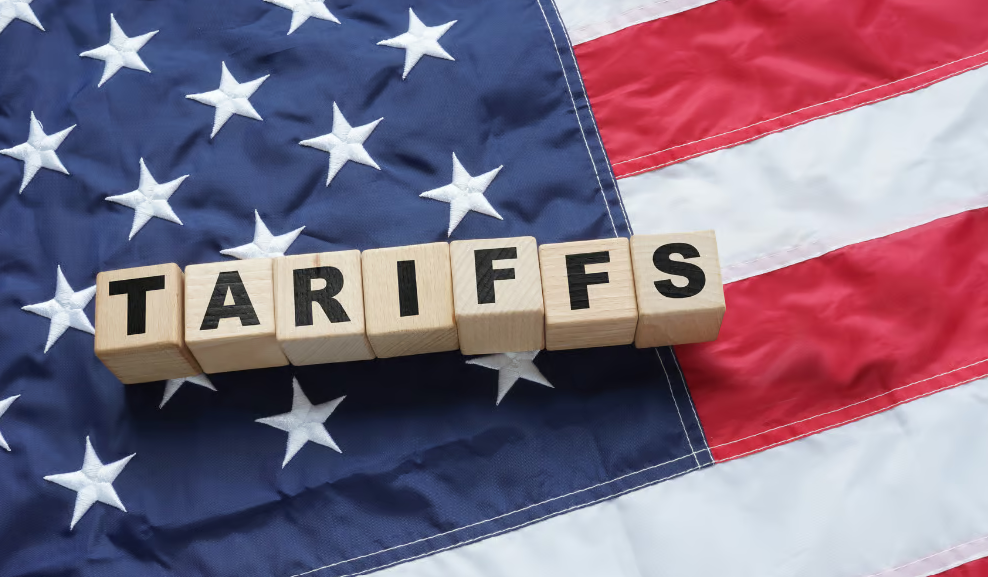

Amid a rolling parade of first-quarter earnings calls, executives from JPMorgan, BlackRock, and Morgan Stanley are registering concern – and signaling resilience – as markets reel from an earthquake of economic uncertainty reverberating from the white house.
As financial markets digest a fresh wave of uncertainty sparked by President Donald Trump’s sweeping tariffs, leaders from the three financial giants offer contrasting assessments on the impact to capital markets, investor confidence, and dealmaking activity.
JPMorgan CEO Jamie Dimon struck a note of concern, warning of an impending disturbance in the US Treasury market, exacerbated by regulatory constraints.
“There will be a kerfuffle in the Treasury markets because of all the rules and regulations,” Dimon said during the bank’s earnings call Friday. He added that the Federal Reserve will likely be forced to intervene – “but not until they start to panic a little bit.”
Longer-term yields have climbed sharply in recent days, reflecting market unease over the tariffs and a potential unwinding of hedge fund trades in Treasuries.
Dimon said the current turmoil calls back to the Treasury market seizure during the onset of the COVID-19 pandemic in 2020, a cautionary event that he said should serve as a teachable moment for policymakers.
“When you have a lot of volatile markets and very wide spreads and low liquidity in Treasuries, it affects all other capital markets,” he said, urging for reforms to bank rules – including, but not limited to, the supplementary leverage ratio (SLR) – to allow banks to become more active intermediaries.
“If they do, spreads will come in, there’ll be more active traders,” Dimon said. “If they don’t, the Fed will have to intermediate, which I think is just a bad policy idea.”
BlackRock CEO Larry Fink expressed shock – a sentiment shared by many across the investment world – at the scale and suddenness of the administration’s tariff strategy.
“The sweeping US tariff announcements went beyond anything I could have imagined in my 49 years in finance,” Fink told analysts after the asset manager’s Q1 results. The announcement, made April 2, was followed by a global selloff, including the steepest two-day S&P 500 plunge since March 2020.
While policy volatility is not new to markets, Fink emphasized the real-world implications for American savers. “This isn’t Wall Street versus Main Street,” he said. “The market downturn impacts millions of ordinary people’s retirement savings.”
The comments underline a key concern for advisors and asset managers alike: that geopolitical moves can rapidly ripple through retail portfolios, increasing the need for nimble risk mitigation and client communication.
Meanwhile, Morgan Stanley CEO Ted Pick struck a more measured tone, particularly as he parsed the outlook for M&A and corporate activity.
“Largely what we’re seeing is some folks still going, but the others pausing. They’re not deleting – they're pausing,” Pick said.
While acknowledging that “it is bumpier for some clients” of the bank's dealmaking division, he maintained a cautiously optimistic outlook that the US economy could avoid recession, something Dimon has flagged as a likely outcome.
Pick noted that the firm has not yet seen a material drop in dealmaking activity in the early part of Q2, though he admitted visibility could change depending on how macro conditions evolve. “[We'll know more midyear] when we see how the economy is reacting to all of the discussions and issues on the table,” he said.
Until a stable economic picture emerges, he said investors will be on non-stop assessment mode, as shown by movements across stock, bond, and currency markets.
“We’ve been talking for the last three years about the end of history, which is to say the end of an extended period of political and economic alignment toward globalization,” he said. “History now resumes. And with that comes an adjustment period where the outlook is necessarily less predictable.”

RBC Wealth Management's latest move in New York adds an elite eight-member team to its recently opened Westchester office.

Stifel – so far - is on the hook for more than $166 million in damages, legal fees and settlements in investor complaints involving Roberts, a 35-year industry veteran.

The giant alt investments platform's latest financing led by T. Rowe Price and SurgoCap Partners, along with State Street, UBS, and BNY, will fuel additional growth on multiple fronts.

Some investors recently have seen million dollar plus decisions by FINRA arbitration panels involving complex products decisions go their way.

New report shines a light on how Americans view wealth today.
Orion's Tom Wilson on delivering coordinated, high-touch service in a world where returns alone no longer set you apart.
Barely a decade old, registered index-linked annuities have quickly surged in popularity, thanks to their unique blend of protection and growth potential—an appealing option for investors looking to chart a steadier course through today's choppy market waters, says Myles Lambert, Brighthouse Financial.
